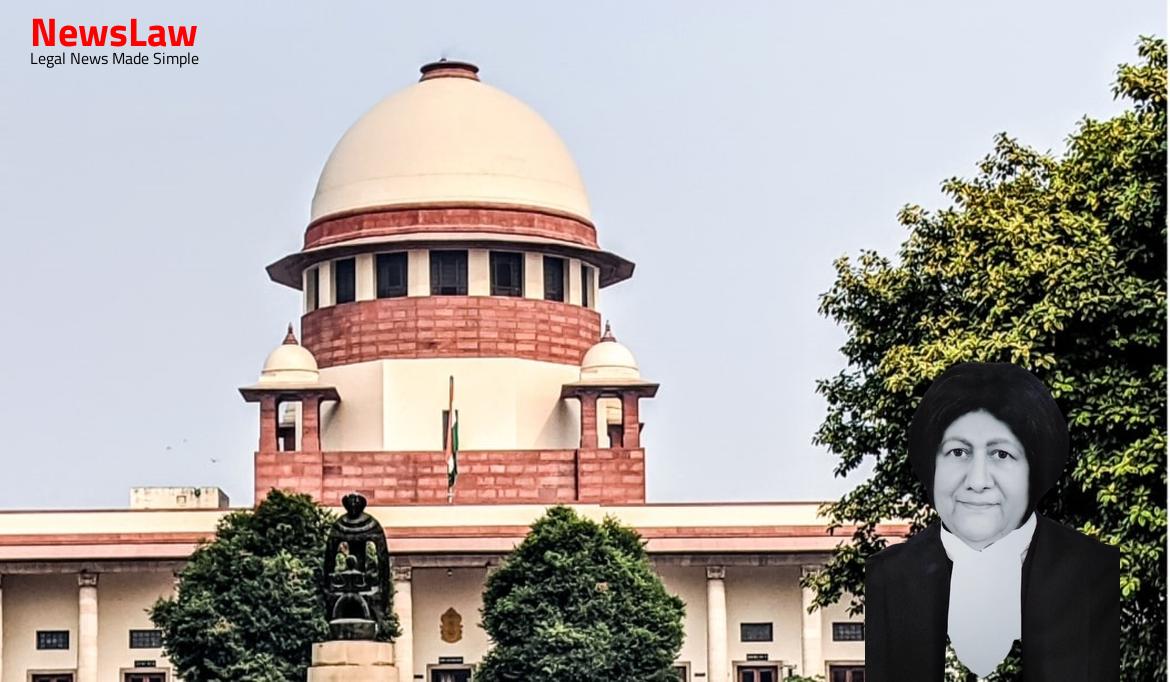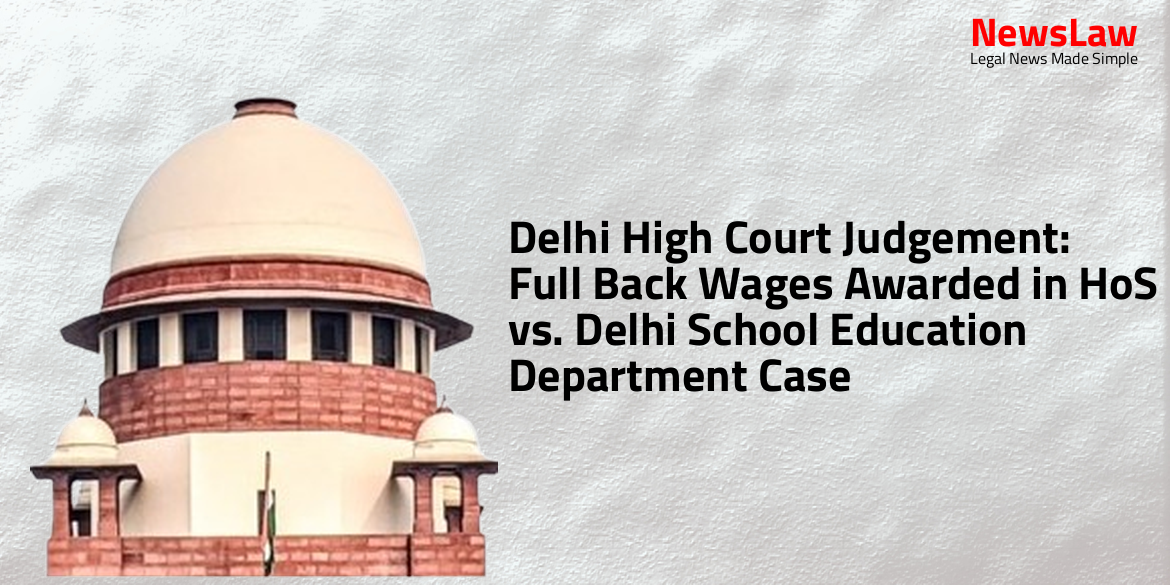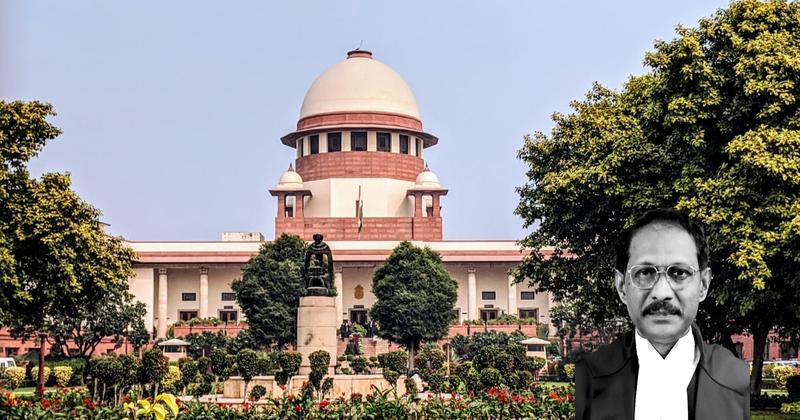In a recent legal case concerning a hire purchase agreement repossession, the court delved into the intricacies of consumer protection laws and the obligations outlined in the agreement. The court’s analysis focused on the necessity of providing proper notice before repossession, highlighting the importance of upholding contractual terms. Let’s explore the key findings and implications of this significant legal ruling.
Facts
- Complainant entered into a hire-purchase agreement with the Financier for a Mahindra Marshal Economic Jeep.
- Cost of the vehicle was Rs.4,21,121/-
- Complainant made an initial payment of Rs.1,06,121/-
- Balance amount of Rs.3,15,000/- was paid by the Financier.
- Complainant agreed to repay a total of Rs.4,38,585/- inclusive of finance charges in 35 monthly instalments.
- Monthly instalments of Rs.12,531/- were to be paid till 1 June, 2005.
Also Read: Analysis of High Courts’ Jurisdiction and Court Orders Under Article 142
Analysis
- The Consumer Protection Act, 1986 aims to protect the interests of consumers by providing speedy redressal of consumer disputes.
- The Act protects consumers from being charged excess prices and provides redressal for deficient services or unfair trade practices.
- The District Forum has jurisdiction to entertain complaints where the value of goods or services does not exceed twenty lakhs.
- The District Forum operates as a civil court under the Code of Civil Procedure while trying consumer disputes.
- Consumers have the right to seek redressal against unfair trade practices or exploitation.
- The National Commission has jurisdiction over complaints exceeding twenty lakhs but not exceeding one crore.
- The National Commission can call for records and pass orders on cases where lower forums have acted illegally or with irregularity.
- The Act does not override other laws like the Contract Act of 1872 applicable to services provided by service providers.
- Consumers are entitled to compensation for losses due to the negligence of service providers or deficient services.
- Provisions of the Consumer Protection Act are in addition to, not derogation of, other laws in force.
- The Findings of the District Forum, State Commission, and National Commission all point towards the fact that the Financier took possession of the vehicle without proper notice to the complainant.
- The Hire Purchase Agreement allowed the Financier to possess the vehicle in case of default, but a duty to give notice before repossession was implicit in the agreement.
- The Complainant alleged forceful possession, but there was no evidence to support this claim.
- The error in the address of the complainant in the notice led to the vehicle being repossessed without proper serving of notice.
- The complaint did not establish a loss suffered by the complainant due to the error in the notice address.
- The District Forum did not assess the damages or loss caused by the lack of proper notice before repossession.
- The State Commission’s finding of sale without knowledge of the complainant contradicted the complaint’s own statements.
- Punitive damages are only awarded in cases of severe breach, which was not the case here.
- The order for the Financier to pay the entire amount and damages was not justified based on the lack of proper notice alone.
- In hire-purchase agreements, the purchaser remains a trustee/bailee on behalf of the financier/financial institution with ownership retained by the latter.
- Repossession of financed vehicles is permissible if the agreement allows the financier to take possession.
- Use of strong-arm tactics by the bank for vehicle repossession is discouraged.
- Possession of the vehicle can be taken by the financier if permitted in the agreement.
- The financier continues to be the owner of the goods under hire purchase.
- Hire-purchase agreements confer no title on the hirer, but only an option to purchase upon certain conditions being fulfilled.
- Notice may be necessary before repossession if implied in the hire purchase agreement.
- Agreements between dealer and customer were financial transactions rather than sales.
- The practice of using force for repossession is deprecated, and repossession must adhere to legal guidelines.
- The financier continues to remain the owner of the vehicle under a hire purchase agreement until all hire instalments are paid, and the hirer exercises the purchase option.
- The impugned orders of the National Commission, the State Commission, and the District Forum under the Consumer Protection Act, 1986 are set aside.
- The Complainant, being a defaulter, was allowed free use of the vehicle for about a year plus damages due to an error in the notice of repossession.
- The prejudice to the complainant caused by the error and consequential non-receipt of the notice was not considered.
- There was no assessment made on the loss, if any, to the Complainant due to the error/omission in the repossession notice.
Also Read: Electoral Malpractices in Mayor Election
Decision
- The appeal is allowed.
- The Financier shall pay a composite sum of Rs.15,000 to the Complainant for damages and costs.
- The company will be deemed to have suffered complete loss.
Also Read: Balancing Power and Transparency: Electoral Bonds Struck Down, Disclosure Mandated
Case Title: M/S MAGMA FINCORP LTD. (FORMERLY MAGMA LEASING LIMITED) Vs. RAJESH KUMAR TIWARI (2020 INSC 574)
Case Number: C.A. No.-005622-005622 / 2019



